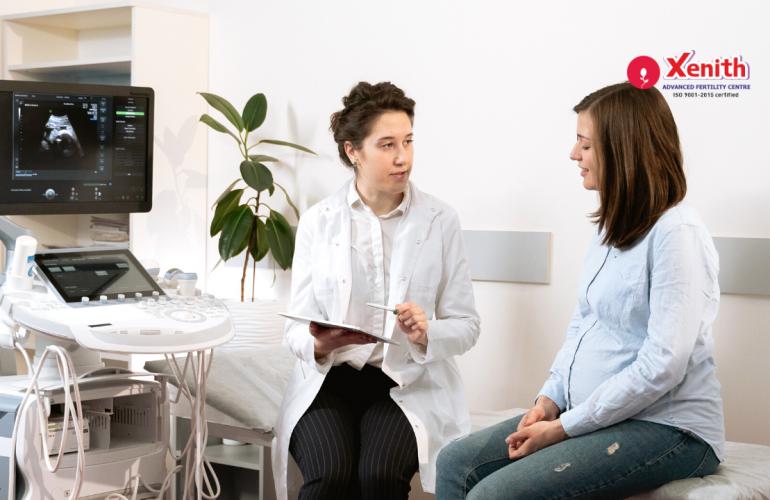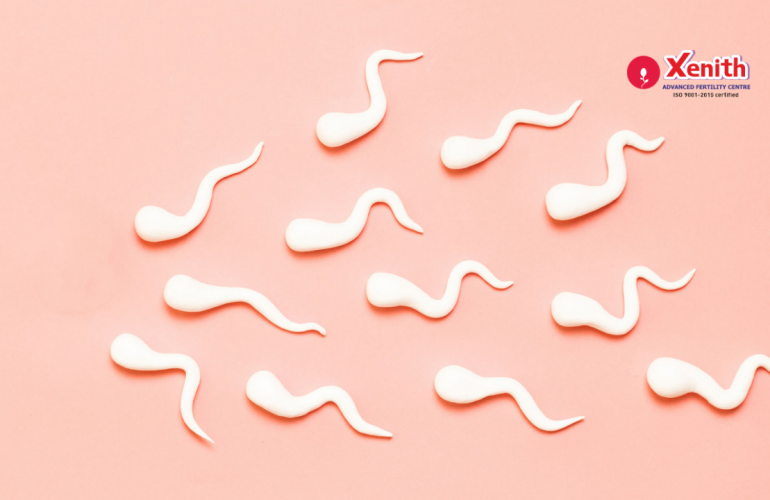“It’s the most painful thing I’ve ever been through…after three failed cycles I’m not sure I can take any more,” said a patient who came to us with wide eyes full of expectant hope. The news that an IVF cycle has failed – whether it’s the first one or the third – can be heartbreaking, but not without hope, as we shall see for this couple and many more like them, at the end of this article.
Many couples are overwhelmed with a sense of uncertainty when an IVF cycle has failed. After repeated failures, couples begin to wonder what to do. What next? How do I deal with this? Should we give up? Should we wait a year and try again? Under the circumstances, these questions and more are bound to arise.

Free Thursday Consultation
Book Your AppointmentBefore we get into understanding IVF cycle failures, let’s start with…
What can you do to increase your chances of IVF success?
Turn to the best IVF clinic in Pune
The likelihood that you will achieve pregnancy and go through full term in the first cycle itself is largely dependent on the quality of the IVF program. IVF clinics are not equal – some have a higher rate of success than others. Going to the best IVF fertility clinic in Pune will certainly increase your IVF success rate. At Xenith, we have a Board Certified Reproductive Endocrinology and Infertility specialist and can boast of some of the highest rates for IVF success in Pune.
Freeze your eggs or embryos in the first IVF cycle
Collecting viable eggs in your first IVF cycle saves you from having to go through the entire hormonal treatment again. This can make the next few IVF cycles a little bit easier since all that the embryologist has to do is fertilize them if eggs are frozen, or implant an embryo if embryos are frozen.
How many IVF cycles should you go through before you see IVF success?
According to the National Institute of Health, it takes an average of 3.6 IVF cycles to achieve pregnancy. Many clinics believe that after 3 to 4 unsuccessful IVF cycles, one is less likely to benefit from future cycles. However, according to a study done in the United Kingdom, the greatest percentage of IVF success occurs in 6 cycles but success is also age-related as this six-cycle regimen works best for women under the age of 35.1 The famous singer, Celine Dion, had to endure 6 failed IVF cycles before having a successful pregnancy.
What are some of the common causes for IVF failure?
There can be myriad reasons why an IVF cycle fails. Each couple is different and while it is not possible to pinpoint the exact reason, there are some common causes.
Chromosomal abnormalities
A failed IVF cycle could be due to the presence of too many or too few chromosomes or structural abnormality in the chromosomes. You can opt for preimplantation genetic testing to be done. A sample of cells from the embryo is taken and examined in our IVF lab for chromosomal abnormalities. This will ensure our embryologists implant an embryo that is not abnormal. This will increase the chances of success.
Endometrial receptivity
Sometimes, the embryo cannot attach to the membrane lining in the uterus also called the endometrium due to various factors like the thickness of the lining, presence of too much fluid, polyps or if there’s an infection. A bacterial infection could be treated by antibiotic therapy. Other factors like a history of fibroids, anatomical abnormality, and having PCOS may influence successful pregnancy. Some of these issues are corrected before the IVF procedure begins to encourage successful pregnancy.
Lifestyle factors
To help the success of the IVF cycle, we recommend that couples lead a healthy lifestyle. There is some indication from studies that show factors such as body weight, smoking, drinking, diet, exercise, and stress can all influence chances of becoming pregnant. Before starting an IVF cycle, it may help to reach an optimal weight through diet and exercise.
Next steps
Have a detailed discussion with your doctor
It is important to understand the recurrent causes of IVF failures. The doctor will be able to evaluate whether the causes can be corrected and the modifications that need to be made for the next cycle.
Couples can have several options even after IVF cycles have failed. If maternal age is a factor, think about using donor eggs which can increase your chances of having a successful outcome. There is also the opportunity to adopt a child to consider. These are personal decisions each couple must make for themselves. It’s also okay if a couple decided to stop the IVF journey.
Take time to pause and grieve, rely on your support group
It is important to seek support through your family, friends, and other support groups, even a psychologist — wherever you feel comfortable to vent your feelings and find a constructive way to heal. Feel free to ask for help and don’t be so hard on yourself. Don’t let yourself feel alone or isolate yourself.
No medical expert or scientist has been able to exactly figure why that magical moment happens and why other attempts have failed. We have experienced some couples succeed in spite of all odds and that gives us all joy. Some couples go through a harder time when there is apparently nothing wrong. Like the couple at the beginning of our article. They were blessed with a baby boy following treatment with us after the previous 5 failed attempts.IVF is still one of the best opportunities infertile couples have to succeed in having children of their own. Visit us at one of our Xenith fertility clinics near you – either at Wakad or Koregaon Park.




